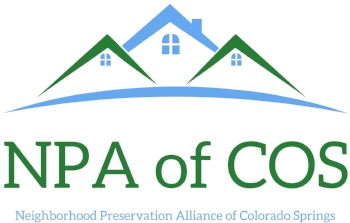All types of businesses in Colorado Springs are restricted in residential property… except for one
There are two sets of rules for business activity in residential zones: one for all kinds of business and another one just for lodging businesses operating as STRs. Before the new STR ordinance was passed, we had had rules in City Code that restrict business activity in residential zones. Now, STRs can operate freely in most residential zones, owner-occupied or not. Are STRs residential in nature? No.
What Does the IRS SAY About STRs? They’re not rentals
Publication 925 (Passive Activity and At-Risk Rules)
Rental Activities
Exceptions. Your activity isn’t a rental activity if any of the following apply.
1. The average period of customer use of the property is 7 days or less. You figure the average period of customer use by dividing the total number of days in all rental periods by the number of rentals during the tax year (page 3, middle of third column).
Publication 527 (Residential Rental Property [Including Rental of Vacation Homes])
Providing substantial services. If you provide substantial services that are primarily for your tenant's convenience, such as regular cleaning, changing linen, or maid service, you report your rental income and expenses on Schedule C (Form 1040), Profit or Loss From Business (page 12, third column)
A dwelling unit doesn’t include property (or part of the property) used solely as a hotel, motel, inn, or similar establishment. Example. You rent a room in your home that is always available for short-term occupancy by paying customers. You don’t use the room yourself and you allow only paying customers to use the room. This room is used solely as a hotel, motel, inn, or similar establishment and isn’t a dwelling unit (page 17, third column).
What does the State of Colorado Say about Lodging Tax?
The State of Colorado considers stays of less than 30 days to be taxable lodging business (not residential):
…hotels, motels, bed-and-breakfast inns, condominiums, campsites, and time shares of any lodging unit. If you own short-term lodging units, any rental of a unit for less than 30 consecutive days is taxable and you are required to collect and remit sales tax. [§39-26-104 (1) (f) and 39-26-102 (11), C.R.S.]
See this State Tax FYI #11 for more details.
WHAT dOES OUR cITY cODE sAY?
Our tax code defines the commercial activity of lodging very clearly:
2.9.103
LODGING: The transaction of furnishing rooms or accommodations to any person who for a consideration uses, possesses or has the right to use or possess any room, or rooms, in a hotel, apartment hotel, lodging house, motor hotel, guesthouse, guest ranch, or any other place that furnishes sleeping accommodations* under any concession, permit, right of access, license to use, or other agreement or otherwise. *emphasis added
Key to the definition is 30 consecutive days. That is where the legal line is drawn:
2.9.104: LEGISLATIVE INTENT:
A. It is declared to be the legislative intent of the City Council that for the purposes of the City Tax Code, every person who purchases in the City:
1. Any lodging, 2. Any automobile rental, or 3. Any campground space rental of less than thirty (30) consecutive days, is exercising a taxable privilege. (1968 Code §3-214; Ord. 78-245; Ord. 82-140; Ord. 01-42)
“So what. It’s still a residential activity, just for a shorter time”. Actually, it’s not. See IRS definition above. Also, see Colorado Springs City Code:
7.2.302: DEFINITIONS OF USE TYPES
A. Residential Use Types: Residential use types include uses providing wholly or primarily permanent living accommodations. *emphasis added
Fine. It’s a business. What’s the big deal?
Our neighborhoods are already protected by Chapter 7, Article 5, Part 15 (Home Occupations):
7.5.1501: PURPOSE: It is recognized that there is a desire by some residential dwelling unit owners or occupants, or both, to use a residence in a manner subordinate to its principal use as a residence. It is also recognized that these subordinate uses as home occupations, can increase rapidly and that such home occupations must be limited so as to not impair the use or value of the residential zone. *emphasis added
We couldn’t agree more!
Other highlights include:
B. Residents: All persons employed by the home occupation business must reside on the premises. *emphasis added
F. Secondary Use: The home occupation shall be secondary to the residential use of the dwelling. *emphasis added
See the entire Home Occupation section of Colorado Springs City Code.
What does the Federal Code of Regulations say?
According to the Americans with Disabilities Act, Title III:
III-1.2000 Public accommodations. The broad range of title III obligations relating to "places of public accommodation" must be met by entities that the Department of Justice regulation labels as "public accommodations. " In order to be considered a public accommodation with title III obligations, an entity must be private and it must --
Own; lease; lease to; or operate a place of public accommodation.
What is a place of public accommodation? A place of public accommodation is a facility whose operations -- affect commerce; and fall within at least one of the following 12 categories:
1) Places of lodging (e.g. , inns, hotels, motels) (except for owner-occupied establishments renting fewer than six rooms) *emphasis added

